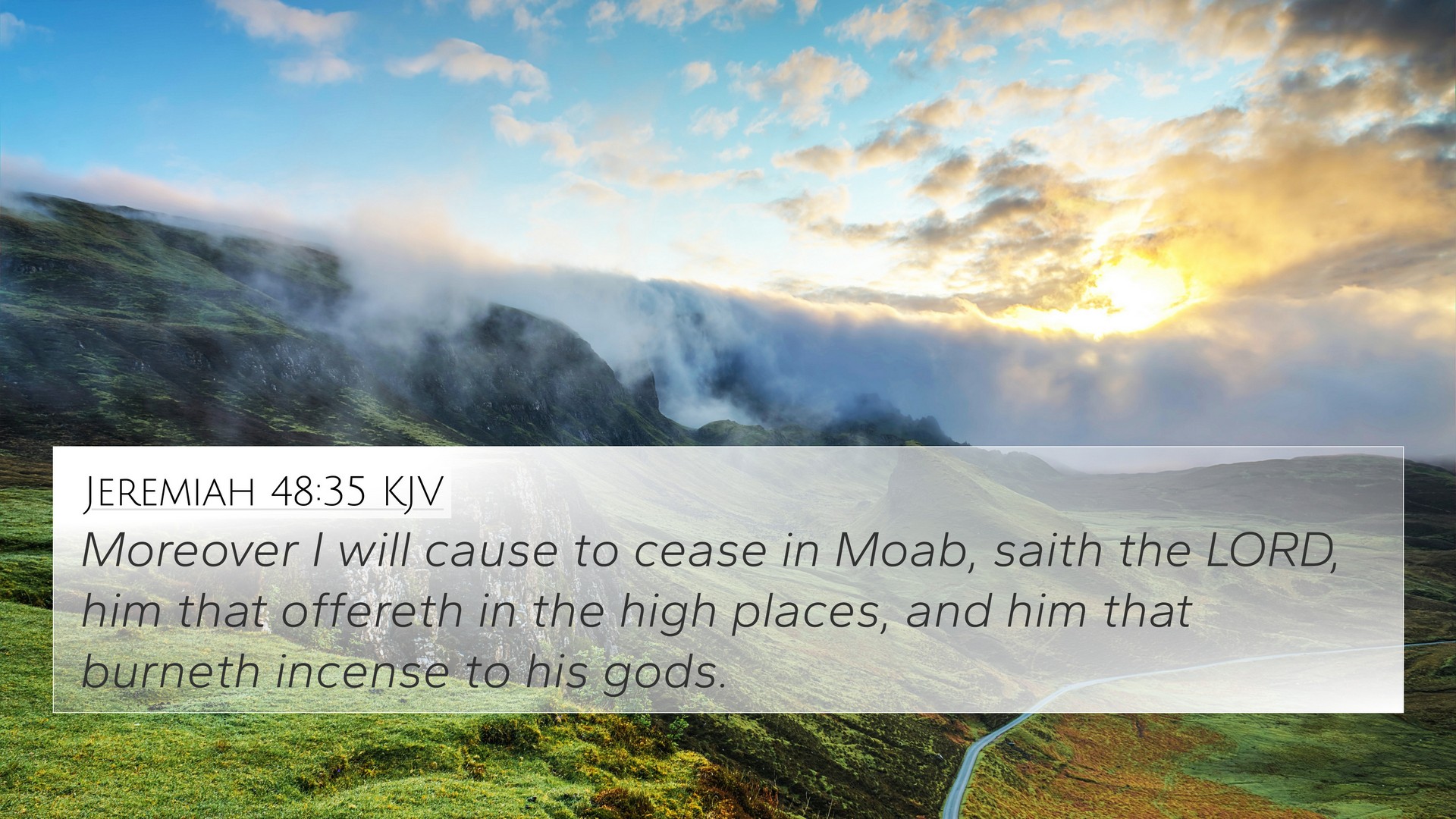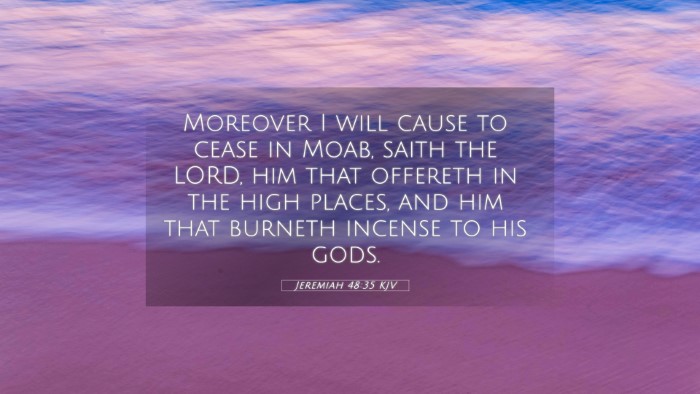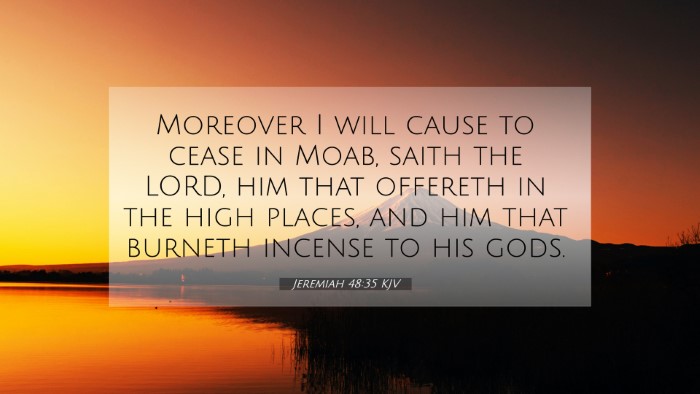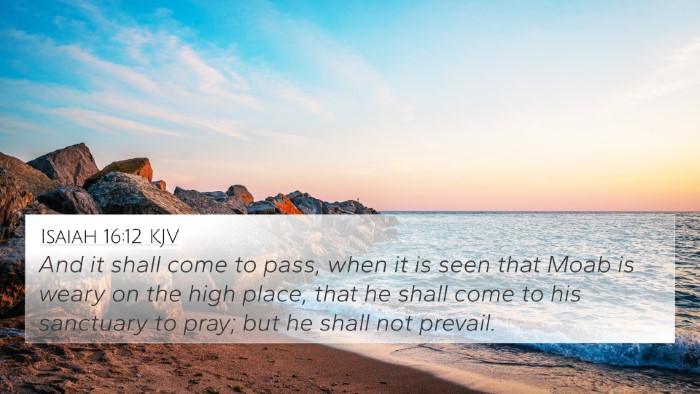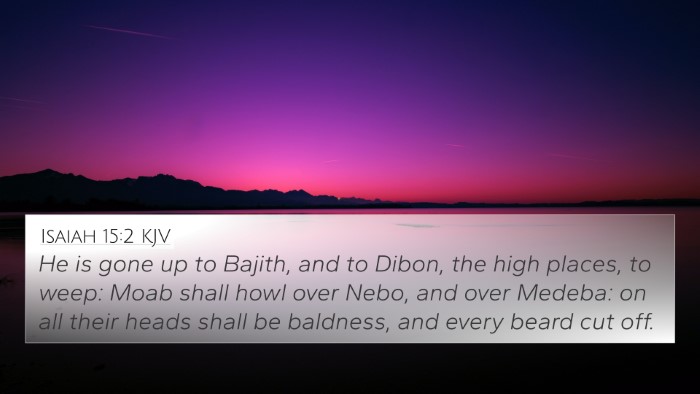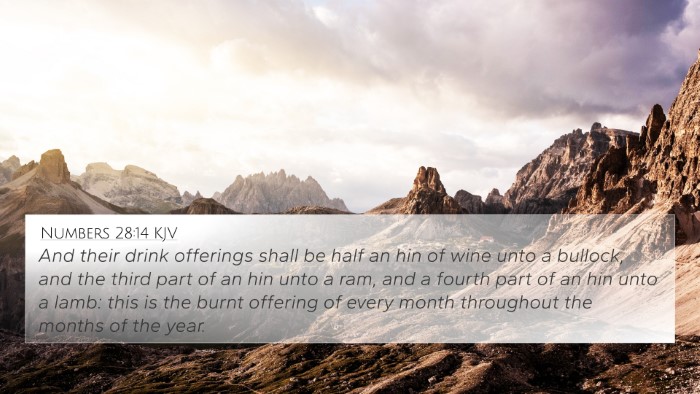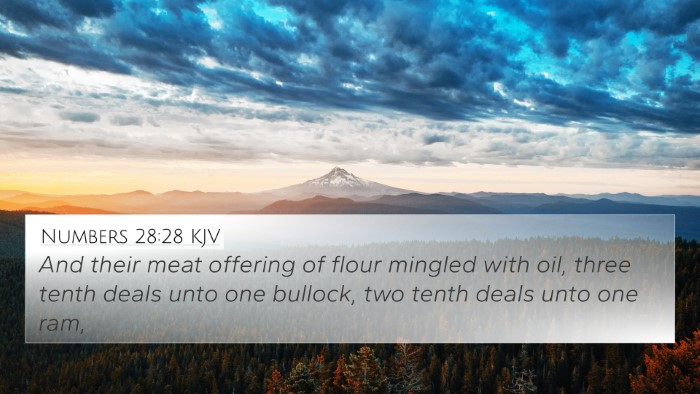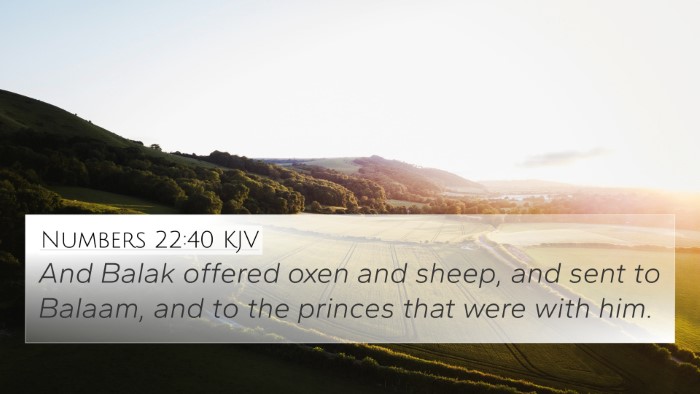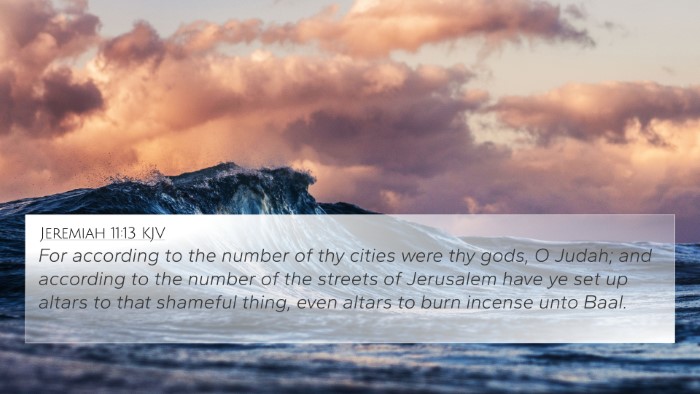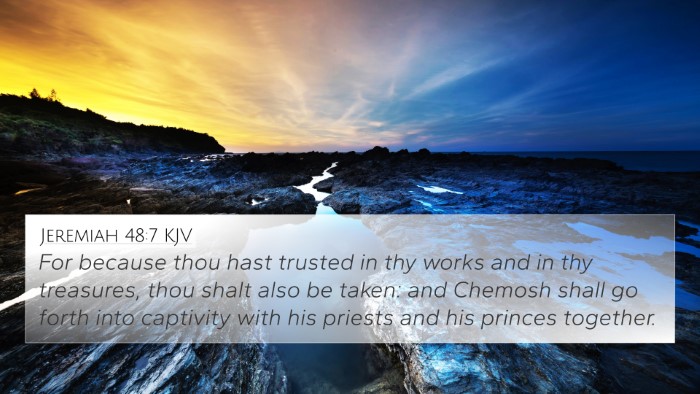Understanding Jeremiah 48:35
Jeremiah 48:35 proclaims the Lord's judgment against Moab, declaring that He will cut off those who carry out sacrifices and offerings. This verse serves as a stern warning and reflects God’s displeasure with false worship and sinful practices.
Meaning and Interpretation
The implications of this verse, as gathered from public domain commentaries, reveal the consequences of idolatry and the importance of true worship. Below are key insights from notable commentators:
-
Matthew Henry:
Henry emphasizes the seriousness of God's judgment against Moab for their idol worship. He illustrates how their reliance on false gods leads to their downfall, underscoring that God rejects insincere offerings.
-
Albert Barnes:
Barnes discusses the spiritual significance of the sacrifices mentioned in this verse. He notes that God seeks honesty in worship, and those who offered sacrifices without true faith rendered their acts meaningless.
-
Adam Clarke:
Clarke points out the cultural context of Moab's sacrifices and the God of Israel’s response to these actions. He asserts that God desires authenticity over mere tradition, making it clear that rituals hold no value if disconnected from divine reverence.
Cross-References
This verse shares thematic connections with several other biblical scriptures. Here are 10 related cross-references that enhance understanding:
- Isaiah 16:2-3: This passage mentions Moab's desperation and calls for divine assistance, illustrating the dire consequences of their actions.
- Ezekiel 25:8-11: Here, God pronounces judgment against the people of Moab, reinforcing Jeremiah's message about their sinful practices.
- Amos 2:1: Amos speaks of the transgressions of Moab, aligning the themes of judgment and punishment with Jeremiah's declaration.
- Deuteronomy 12:31: This verse warns against following the abominations of other nations, emphasizing the importance of pure worship.
- Matthew 15:8-9: Jesus quotes Isaiah concerning worship that is merely lip service, resonating with the message of Jeremiah's declaration.
- Jeremiah 44:7-8: In this passage, God critiques the Israelites for turning to idolatrous practices, similar to the condemnation of Moab.
- Hosea 4:6: This verse addresses the consequences of forsaking knowledge, paralleling the national plight of Moab under God's judgment.
- Hebrews 10:26-27: The New Testament warns against willful sin after knowing the truth, paralleling the sacrifices made by Moab without repentance.
- Revelation 21:8: This passage speaks about the fate of the unrepentant, similar to the fate of those mentioned in Jeremiah.
- Romans 12:1: Paul encourages true worship that is spiritual and genuine, contrasting sharply with the empty sacrifices of Moab.
Thematic Connections
The frequent theme of judgment upon nations for their idolatry and disobedience runs throughout the Bible. The connections between Jeremiah 48:35 and the verses listed above illustrate God's unchanging nature regarding true worship and divine accountability.
Detailed Cross-Reference Analysis
When studying Jeremiah 48:35, the connections to both the Old and New Testament reveal a holistic biblical narrative that emphasizes the need for sincere worship and accountability before God. By using tools for Bible cross-referencing and a Bible concordance, readers can uncover how scriptural themes are interwoven throughout the scriptures.
Conclusion
In summary, Jeremiah 48:35 serves as a crucial reminder of the importance of genuine worship and serves as a warning against the futility of empty rituals. The connections made with other passages highlight a consistent biblical theme of God calling His people to authentic relationship rather than mere sacrifice.
Further Study
Readers interested in further exploring these themes are encouraged to use a Bible cross-reference guide or conduct a cross-reference Bible study, as these methods can yield rich insights into the interconnected narratives of the Bible.
